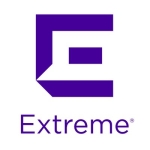We using now working with a customer in Jedda. We sold more than 738 access points - 294 outdoor access points and around 500 indoor ones. We sold a controller for this number as well.
Aruba has a lot of features.
The stability is the best. It's very reliable.
The roaming signal is excellent.
You can do firewalling over the WiFi which is unique.
The initial setup is easy.
Sometimes the configuration is difficult.
Aruba needs to offer an IT telephone in order to can catch all of the market. Cisco already has an IT telephone security product. Aruba does not. If Aruba offered an IP conference option it would be great.
I've worked with Aruba for seven years at this point.
The stability is great, as is the reliability and the performance. there are no bugs or glitches. it doesn't crash or freeze. the signal is strong.
Aruba is scalable. Many products are. For example, if we have a controller, we can manage 2,000 access points and can add another thousand access points.
Technical support is very good, very qualified. We are very happy with their level of knowledge and support.
We are a partner for Aruba, Cisco, and Huawei.
The implementation is easy. Anyone that has a platform from Aruba or knows about Aruba knows about configuring the product, which can be difficult. There are many deployment options for a natural configuration. You need to figure out what type of deployment you are doing (and there can be many) and do it according to your specific needs. If one has enough experience or is certified from Aruba, he can do it. If he doesn't it's complex and difficult.
ClearPass from Aruba is complicated. However, it's a very good, powerful software.
We are on a partner, gold partner at tier-one for HP. We are working directly with the vendor. There isn't any team, or any supplier, or anyone between us and Aruba. For Cisco, we are working with their team or, and the suppliers from Europe, from Dubai. We request some material from them, and that's all. Huawei has the same setup as Cisco.
I'm certified ACMP, ACSP, ACDB, and a certified ACAD, AC professional.
While the latest release was 10, we are working with 8.7.
New users will get a lot of benefits from Aruba. They have a lot of products - including ClearPass. Users will not find any net solution like ClearPass, from anyone. In Gartner, it is a leader in IoT for wired and wireless IoT such as cameras, access control, et cetera. They also have great switches. It's a very big vendor like HP.
Aruba has a lifetime warranty. You don't need to get proactive care; the hardware already has a lifetime warranty. In the end, you will get a lot of benefits.
I'd rate the solution at a ten out of ten.


















